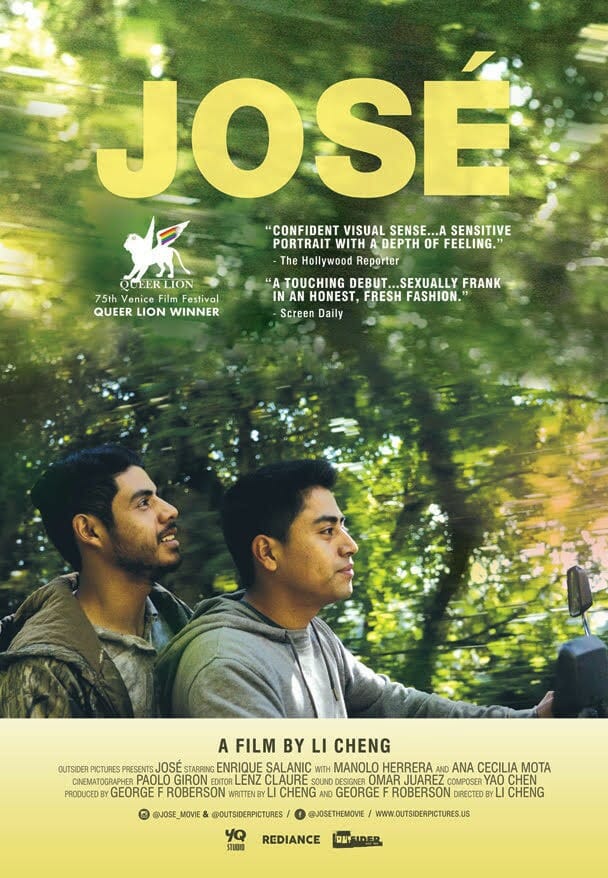So many cinematic stories that illuminate the LGBTQ experience in Mexico, Central and Latin America have been coming out this past year and it’s glorious to see. Joining them at the end of January, is “José,” the Guatemalan film, described as “a gripping, layered and beautifully honest story about one working class young man’s struggle to find himself.”
Among the honors bestowed on the film was the prestigious Queer Lion award at the Venice film festival in 2018. José opens Jan. 31 at the Quad Cinema in New York, followed by the Laemmle Royal in Los Angeles and Chicago’s Gene Siskel Film Center on Feb. 7 then on to various cities from San Diego to Ft. Lauderdale to Tempe, AZ. For more visit: http://www.outsiderpictures.us/movie/jose/
Unfortunately, its opening has been marred by the fact that the film’s star, newcomer Enrique Salanic, has not received permission to travel the U.S. which the film’s distributor, Outsider Pictures, calls unfair and an example of political bias.
“This film is powerful in the way it shines a light on the heartbreak of having to choose between family and love. It’s sad and unfortunate that Salanic, who is so wonderful as José and who has lived and studied in the United States, may not be allowed to help introduce his film, like so many actors and artists visiting the U.S.,” said Monica Trasandes, Director of Spanish-Language & Latinx Media at GLAAD.
The titular character, José, struggles with the desire to help the mother and family that both love and need him with the desire to live openly. Subtle references to evangelical religion, which some argue the U.S. helped strengthen in Central America in the 1980s, are included in various scenes. By including this powerful cultural influence and depicting the pressures of poverty and homophobia, the film explores how difficult it can be to do something that seems so simple to those living in more affluent worlds: be with the person you love.
Director Li Cheng and producer George F. Roberson lived in Guatemala 2 years, according to press materials, and shaped the story’s narrative by interviewing hundreds of young people in 12 Latin American countries. They asked interviewees to answer three questions: “Which person are you closest to in your life?” “What’s your most unforgettable memory?” “Have you been in love?” Cheng summarized the film by saying, “José is about family, work, struggle, love and loss – and finally it’s about one man’s search for “self” and the search for Guatemala’s future.”
The film’s story is particularly relevant in a time when many of the refugees who have fled to the United States from Central America are LGBTQ, and have had to leave their families and communities in order to save their lives. Groups along the border are trying to help the LGBTQ migrants who, along with adults and kids fleeing violence and poverty, live in makeshift camps along the border and are barely surviving.













